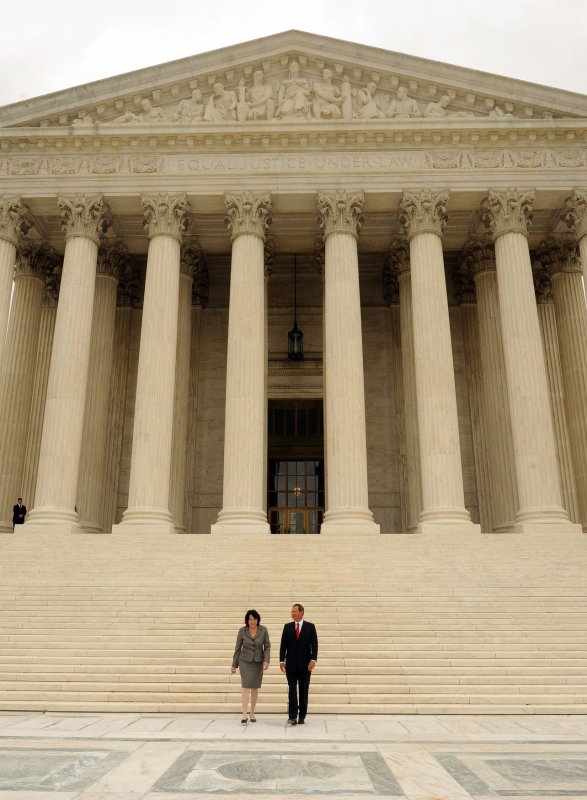U.S. Supreme Court Justice Sonia Sotomayor and Chief Justice John Roberts stand at the steps of the Supreme Court after her Investiture Ceremony in Washington on September 8, 2009. UPI/Roger L. Wollenberg |
License Photo
WASHINGTON, May 3 (UPI) -- Visitors to the U.S. Supreme Court will no longer be able to climb architect Cass Gilbert's historic steps to use the main entrance, the court said Monday.
A court statement cited security. Two justices objected to the change.
The court said Monday new entrance doors on either side of the front steps will be open to the public starting Tuesday, but the main entrance at the top of 34 marble steps will be closed at the same time. Visitors still will be able to use the main doors as an exit.
The doors on the Maryland Avenue north side and the East Capitol Street south side may still be used as exits by the public, but the Maryland Avenue entrance is "for employees, guests with scheduled appointments and members of the press who hold Supreme Court credentials."
The court statement said the new entry "was designed in light of findings and recommendations from two independent security studies conducted in 2001 and 2009. The (new) entrance provides a secure, reinforced area to screen for weapons, explosives, and chemical and biological hazards."
Justice Stephen Breyer, joined by Justice Ruth Bader Ginsburg, issued a memorandum objecting to the closing of the main entrance.
"I write with regret to note the closing of the court's front entrance," Breyer said. "The Supreme Court ... has decided that ... visitors to the court -- including the parties whose cases we decide, the attorneys who argue those cases, and the members of the public who come to listen and to observe their government in action -- will have to enter through a side door. While I recognize the reasons for this change, on balance I do not believe they justify it. ... I write in the hope that the public will one day in the future be able to enter the court's Great Hall after passing under the famous words 'Equal Justice Under Law.'"















